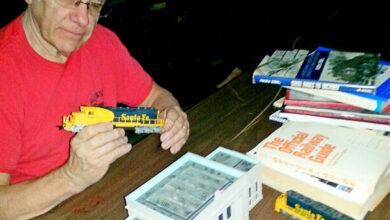Housing rentals largely unregulated
Brockport requires rental registrations
by William Matthias
The renting out of single-family houses or rooms within them is largely unregulated in Monroe County, but a few municipalities in the area, including Brockport, have implemented rental regulations to improve quality-of-life needs and to prevent problems from occurring in and around these properties.
Brockport is one of only two municipalities in the county, with the Town of Irondequoit, that requires rental registrations for single-family rentals, according to Irondequoit’s director of development services, Larry Heininger. Additionally, Brockport applies the same state laws that regulate multi-family dwellings – detailed in the New York State Uniform Fire Prevention and Building Code – in a similar way to single-family rentals.
“This has been the way of compliance in the Village of Brockport for nearly 40 years,” said Scott Zarnstorff, Brockport’s code enforcement officer, fire marshal and building inspector. “We’ve always been actively involved in residential rental properties and our local laws clearly indicate our due diligence with these properties and other types of off-campus housing.”
The state code requires fire safety and property maintenance inspections of multi-family dwellings (properties containing three or more individual rental units) every three years. Most municipalities in Monroe County can only legally inspect single-family dwellings during or upon construction because their codes do not contain the additional regulations/restrictions outside of the state’s uniform code that would allow further inspections.
These town and villages typically do not know when a single-family dwelling has become a rental because there aren’t any municipal guidelines for residents to follow, or documents, like a rental registration, to file.
“In a college town, kids can easily be taken advantage of by their landlords,” Spencerport Code Enforcer Kevin Kelly said. “So, I can understand why Brockport’s code would require a rental registration, to protect the tenants and surrounding neighborhood – so you’re not dealing with properties that are becoming run down on the inside or outside.”
Brockport created the rental registrations in 2008. They are valid for one year, with a $50 fee per building, as stated on the form, and are required for all residential rental properties as defined in Chapter 36 of the village code. As part of the registration, rental property owners who live more than 45 miles from the village must name a local property manager who may act on the owner’s behalf. They must also report the total number of tenants occupying each rental unit and indicate if they are related to one another.
This helps ensure that rental property owners are not in violation of Brockport’s law limiting the number of unrelated tenants living in single-family dwellings to three. The law is created, in effect, by the legal definition of “family” within Brockport’s code. The definition includes “(three or fewer) persons occupying a dwelling unit, or four or more persons occupying a dwelling unit and living together as a traditional family or the functional equivalent of a traditional family.”
The definition was modified in 1995 and includes four criteria used to determine if a group functions as a “traditional family.” Most definitions of “family” in Monroe County’s municipal codes are less specific than Brockport’s, with no limitations regarding unrelated tenants. Zarnstorff said college towns like Brockport are traditionally more restrictive.
“Our family definition is modeled after the Town of Poughkeepsie’s,” Zarnstorff said. “We knew their definition was upheld in the courts and found constitutional, so the village considered and adopted it, as did a number of other college towns, including Fredonia and Geneseo. College towns make very unique codes because of their transient populations and how those populations can heavily impact communities.”
The Town of Henrietta recently modified its definition of “family” in response to complaints about excessive noise, lewd acts, speeding and problematic parking in residential neighborhoods, according to town meeting minutes. Henrietta Town Supervisor Michael Yudelson said while updating its code, the town decided to change the definition of “family” so that it could be admissible in court and the town could therefore enforce it.
Every municipality in New York state is required to enforce the uniform fire prevention and building code, unless they defer enforcement to the county or state level, Zarnstorff said. No municipality in Monroe County has deferred enforcement. What makes Brockport unique is that the village considers single-family rentals with the same level of scrutiny as multi-family dwellings under authority of local law.
New York state is a “home rule state,” meaning municipalities are granted the authority to enact certain local laws for the protection of public health, safety and welfare, such as a rental registration requirement. These laws, however, cannot be more restrictive than applicable/similar state laws. New York state code does not deal with zoning, a fact that affords Brockport and other localities the opportunity to regulate single-family rentals with “family” rules.




